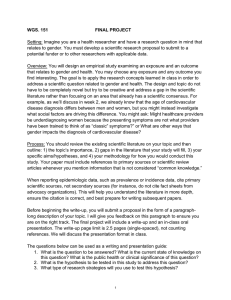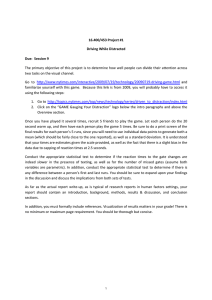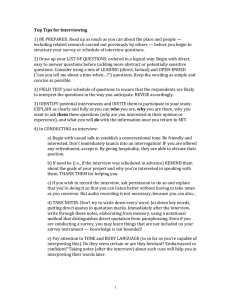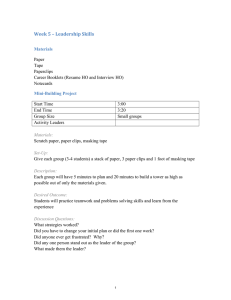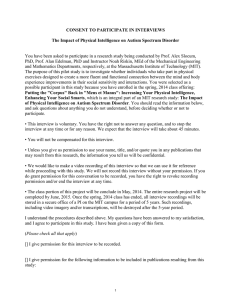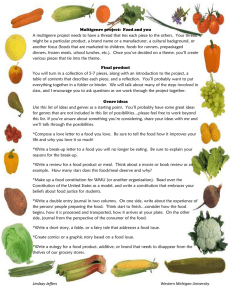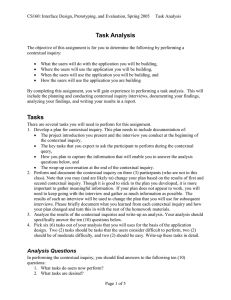Document 13377439
advertisement
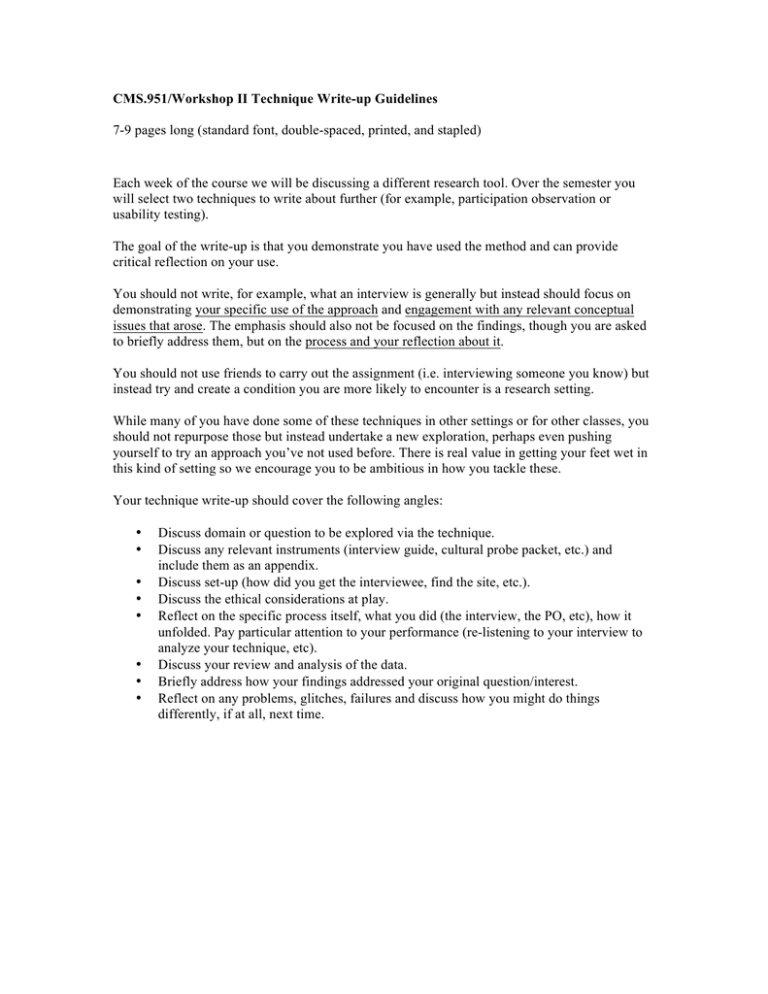
CMS.951/Workshop II Technique Write-up Guidelines 7-9 pages long (standard font, double-spaced, printed, and stapled) Each week of the course we will be discussing a different research tool. Over the semester you will select two techniques to write about further (for example, participation observation or usability testing). The goal of the write-up is that you demonstrate you have used the method and can provide critical reflection on your use. You should not write, for example, what an interview is generally but instead should focus on demonstrating your specific use of the approach and engagement with any relevant conceptual issues that arose. The emphasis should also not be focused on the findings, though you are asked to briefly address them, but on the process and your reflection about it. You should not use friends to carry out the assignment (i.e. interviewing someone you know) but instead try and create a condition you are more likely to encounter is a research setting. While many of you have done some of these techniques in other settings or for other classes, you should not repurpose those but instead undertake a new exploration, perhaps even pushing yourself to try an approach you’ve not used before. There is real value in getting your feet wet in this kind of setting so we encourage you to be ambitious in how you tackle these. Your technique write-up should cover the following angles: • Discuss domain or question to be explored via the technique. • Discuss any relevant instruments (interview guide, cultural probe packet, etc.) and include them as an appendix. • Discuss set-up (how did you get the interviewee, find the site, etc.). • Discuss the ethical considerations at play. • Reflect on the specific process itself, what you did (the interview, the PO, etc), how it unfolded. Pay particular attention to your performance (re-listening to your interview to analyze your technique, etc). • Discuss your review and analysis of the data. • Briefly address how your findings addressed your original question/interest. • Reflect on any problems, glitches, failures and discuss how you might do things differently, if at all, next time. MIT OpenCourseWare http://ocw.mit.edu CMS.951 Workshop II: Qualitative Social Science Methods for Media Studies Spring 2015 For information about citing these materials or our Terms of Use, visit: http://ocw.mit.edu/terms.
